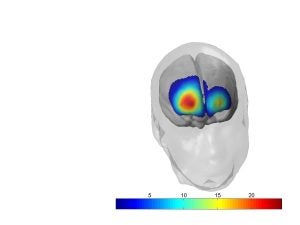CLC-IV Lab
About Our Research
At the most fundamental level, the purpose of our research is to expand the scientific knowledge and understanding of Attention-Deficit/Hyperactivity Disorder (ADHD) in children. More specifically, our research efforts are focused on understanding the complex interplay among higher-order executive functions (EFs: working memory/behavioral inhibition), behavior (e.g., inattention, excessive gross motor activity, impulsivity), and functional impairments (particularly learning outcomes) with the expressed purpose of designing innovative treatments for children with ADHD in future years. Ongoing projects in the CLC-IV currently involve using experimental methods to isolate components of working memory (central executive functions, phonological and visuospatial STM storage/rehearsal mechanisms and processes, orthographic conversion processes) and examining their functional relationship to adverse functional outcomes associated with the disorder (e.g., learning/academic achievement deficits, interpersonal/peer relationship difficulties).
Our newly planned series of investigations focus on exploring underlying regional (Brodmann areas) and patterning (communication) activation deficits in children with ADHD by means of brain mapping (fNIRS: functional infra-red spectroscopy). Doing so will increase our knowledge concerning the complex interplay among brain functioning, cognition, and behavior, and allow us to identify intra-individual deficits that can be selectively targeted and engaged by cognitive training.
Above is an image of a child’s (ADHD) cognitive activity in the frontal/prefrontal regions while completing one of our newly designed WM visuospatial tasks.
Doctoral students work together as a research ‘team’ and are actively involved in the numerous on-going research studies being conducted at the CLC-IV throughout their graduate training. Two of our recent meta-analytic literature reviews were recently published and accepted for publication in the flagship journal, Clinical Psychology Review. Please visit the ‘Publications’ page for examples of past research studies conducted by our doctoral students.
Prospective Students
Students interested in applying to the Doctoral Training Program in Clinical Psychology at the University of Central Florida (UCF) and working/studying with the CLC-IV research team are encouraged to contact Dr. Rapport by e-mail after reading several of our published research studies. We are particularly interested in students who are highly motivated to learn, possess potential to excel in quantitative science, and who desire to become researchers in the field of clinical child psychology. Students should also be keenly interested in the field of cognitive neuroscience as it applies to child psychopathology and enjoy participating in a highly productive research team environment. We are currently turning our efforts to (a) designing innovative interventions for children with ADHD that focus on training select central executive/subsystem processes, coupled with on-line, synchronous academic instruction based on our recent findings; and (b) understanding the complex interplay among WM deficits, arousal, and hyperactivity by means of brain mapping (fNIRS). Students must also enjoy working with children and be dedicated to making a significant difference in children’s lives as a prerequisite to joining the on-going efforts of the UCF Children’s Learning Clinic-IV.
Fifteen students who have been mentored by Dr. Rapport have gone on to hold academic positions at universities throughout the country (and in South Korea), as well becoming respected experts in the field. A sample listing of past CLC alumni is contained in the People section. For additional information about the University of Central Florida’s clinical psychology program, application deadlines, and other relevant information, please visit the psychology department’s website at www.psych.ucf.edu.
Undergraduate Research Assistants
The CLC-IV accepts undergraduate students seeking to benefit from research experience who intend on applying to graduate school. Research assistant’s (RA’s) will obtain a broad array of skills and experiences from volunteering. Specifically, RA’s can expect to gain experience involving the principles of behavioral observation while using the sophisticated Noldus computerized observation system, advanced statistics, and child psychopathology, among others. We are proud to state that past RA’s from the CLC have a remarkable 100% acceptance rate in gaining entry into a number of graduate programs, including several Ph.D. programs in clinical and school psychology. For a listing of past RA’s and where they have gone, see the people webpage.
We use the following criteria in selecting undergraduate students for RA positions at the CLC-IV:
Students must be no more than an entering junior (1st semester) in standing (although we give preference to freshmen and sophomores) and currently have a minimum 3.4 GPA (there are exceptions). We require a minimum of a 2-year commitment due to the extensive training required, 10 hours per week (including assisting during June and July each summer), weekly attendance at our Wednesday (12:00-1:30 p.m.) research meetings, the ability to assist on occasional Saturdays (when we see children), and a clear interest in pursuing graduate education in a closely related field. If you meet these qualifications, log onto the Children’s Learning Clinic-IV website (www.childrenslearningclinic.com) and read over several of our recent articles that address the link between ADHD and working memory. E-mail Dr. Rapport (mark.rapport@ucf.edu) afterwards if you meet the aforementioned qualifications and the research we are conducting appears interesting to you.

